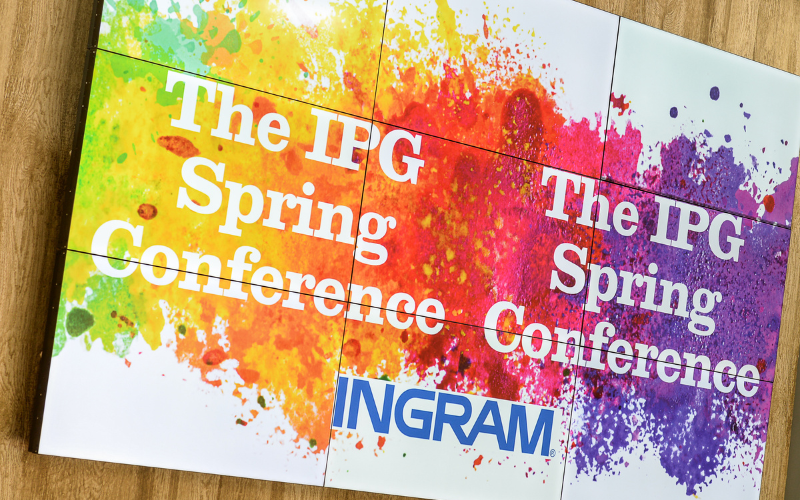Independent Publishing in Mid-2022: Five themes at the IPG’s Spring Conference
The Independent Publishers Guild’s 2022 Spring Conference in Nottingham on 8 and 9 June discussed a wide range of opportunities and challenges facing the independent publishing sector as we approach the second half of the year. Here are five of the most pressing issues raised by more than 30 speakers and several hundred delegates at the event, both in-person and online.
1. Costs
There is no escaping the mounting cost pressures on publishers at the moment. A panel session on the supply chain with David & Charles’ James Woollam, Clays’ Vicky Ellis and Swift Press’ Diana Broccardo highlighted steep increases in prices across paper, printing and distribution, and agreed that the problems would get worse before they get better. But the trio also suggested various ways to mitigate the rises, like staying close to supply-chain partners, shopping around for deals, avoiding reprints where possible, and reducing paper and print specifications. Raising the prices of books would be another way to protect profit margins, but another Conference panel agreed this was a tricky issue and carried the risk of damaging sales and partnerships with retailers. Educating readers about the value of books – especially compared with other purchases and forms of entertainment – could smooth the way for increases.
2. Communities
The event was the IPG’s first in-person Spring Conference for three years, and reminded publishers of the huge value of getting together in person to share ideas and experiences. The importance of community was picked up in a keynote speech from Ben Keene, the founder of the Rebel Book Club. “You can build a book club community around any niche you want,” he said. Specialist publishers including Jon Barton of outdoor adventure publisher Vertebrate highlighted the importance of getting to know their close-knit communities of readers and authors, while The Guardian’s media editor Jim Waterson emphasized the huge value of online social communities – especially TikTok, which has transformed the sales of many books in recent years.
3. Sustainability
The IPG has been closely involved in publishing’s efforts to make itself more sustainable, especially via the award-winning Book Journeys Project. The Project aims to increase awareness of environmental impacts in publishing and provides tools to help companies make informed buying decisions in print and production. Its next phase of research will look at ways to reduce the environmental impacts of returns and other ways unsold books are treated. The Conference also introduced a new toolkit to help IPG members on their journeys towards zero-carbon status. Social pressure is building on businesses to act responsibly, but several speakers acknowledged that good practice isn’t always cheap. “Producing books more sustainably requires extra cost, and we need to explain that to consumers,” said David Graham of BT Batsford.
4. Formats
The multiple formats available to publishers was a recurring theme of the Conference. Videl Bar-Kar of Bookwire showed how the audio market continues to soar, while Ingram Content Group’s Ruth Jones discussed how print on demand has opened up new possibilities for publishers. Several speakers noted that Covid lockdowns had increased the take-up of digital forms of content – especially in the academic and educational sectors. Amanda Ridout, chair of the IPG and founder of Boldwood Books, said her new business had a strategy of simultaneously publishing every new book in no fewer than ten different print, digital and audio formats, giving people the wide choice they demand now.
5. Metadata
The IPG’s events have always emphasized the importance of metadata to the visibility and sales of books, and the Spring Conference demonstrated the impact they can make. Kate Pearce of Phoenix Publishing House said good metadata practice had been a “gamechanger” for her new business, and Martin Klopstock of Kogan Page highlighted the helpful resources that are available to publishers from EDItEUR and BIC. “Metadata isn't as scary as you might think… don’t put it off,” Pearce said.
The Spring Conference also stressed the importance of good training and leadership as publishing deals with these and other challenges.


Tom Holman
Tom Holman is the IPG’s Head of Communications
You can read more about the IPG’s Spring Conference via the #ipgsc hashtag, and see photos from the Conference in this Facebook album.
The IPG provides a wide range of events, resources and services to help independent publishers do better business. For more about its work, visit its website.